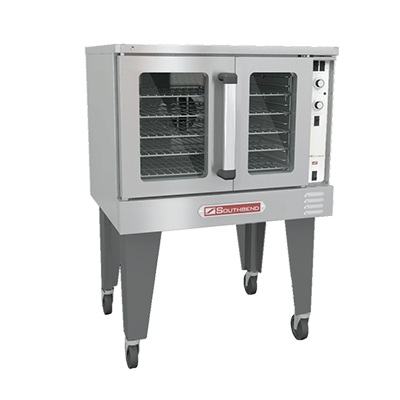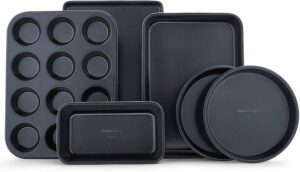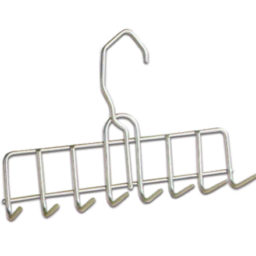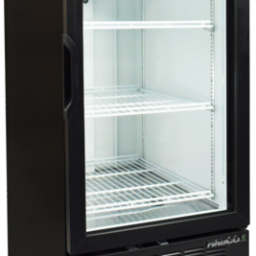Picture this: You want to bake a cake and some other foods for your child’s birthday party this evening. You want the cake to be baked perfectly of course, but when you look into your cabinet you see bakeware made of glass, aluminum, and even steel. You have no idea which type of bakeware will bring out the best results.
An important part of choosing the right bakeware to use when preparing your food is understanding the different materials that bakeware can be made from. Bakeware is available in a variety of materials that each have a different influence on the quality of the food you are preparing.
Below are the most common materials for bakeware, as well as a description for each and tips on how to clean your bakeware based on the type of material it is made from.
Aluminum
Aluminum is ideal for baking because is conducts heat really well, which results in even baking. Aluminum will not rust, and it is also durable, especially if you use heavy-gauge aluminum instead of thinner aluminum that is more likely to warp when exposed to higher temperatures. A downside of this material is that its shiny surface may prevent the food from properly browning. You also should not use aluminum bakeware if preparing acidic foods, because the acid in them can react with the aluminum, causing the food to have an unpleasant taste.
Maintaining your aluminum bakeware: Clean aluminum bakeware with hot soapy water. If you need to do some extra cleaning, try a nylon scouring pad.
Aluminum Foil
You can use an aluminum foil pan for preparing a variety of foods including bread, pizza, and other yummy dishes like casseroles. These are perfect for when you must serve a large group of people because you can deliver the goods right from the pan they were made in. Since these pans are disposable, you are also left with less of a mess. If you decide to reuse the pans, that is fine too because they are super easy to clean.
Maintaining your aluminum foil bakeware: You can clean aluminum foil bakeware with just hot soapy water or nylon scouring pad for a deeper clean. Be very gentle so that you do not bend the foil pans out of shape while handling them. If you choose to use a dishwasher, do not place anything heavy on top of the pans or they may become dented.
Anodized Aluminum
Anodized aluminum bakeware can either be silver anodized and hard anodized. Each type is explained below.
- Silver Anodized: Bakeware that is silver anodized is made of aluminum with a hard outer layer due to going through an electro-chemical process. This process gives the aluminum a scratch resistant and stick resistant surface. This material also will not rust, peel, or blister. Silver anodized aluminum is durable, and it conducts heat quickly and evenly. This means you can sometimes reduce cooking times, since your food will be baking quicker.
- Hard Anodized: Hard anodized bakeware is very similar to silver anodized. A major difference is that the aluminum going through a longer process, resulting in a a hardened surface finish that is about 10 times thicker than the silver anodized. This means that metal utensils can be used on hard anodized bakeware without causing damage to the surface. Knives are an exception as they may cause scoring. Hard anodized bakeware has a darkened surface, which may affect baking time, so check for doneness often.
Maintaining your anodized aluminum bakeware: Silver anodized and hard anodized bakeware can be cared for in the same manner. Since it does not rust, the bakeware can be washed with hot soapy water. This bakeware must be washed by hand, so do not place it in the dishwasher.
Stainless Steel
Tinned Steel
Insulated Bakeware
Insulated bakeware consists of two layers of metal that are cushioned by a layer of air, which allows for even baking and browning without burning. Insulated bakeware may not heat as quickly as other materials due to the layers that provide more protection from the heat source. Make sure to pay attention to baking times.
Maintaining your insulated bakeware: Clean your insulted bakeware depending on the material it is made from. If it has a non-stick coating, care for it in the same manner as other non-stick bakeware.
Glass
Stone
Stone bakeware is made by firing stone at a very high temperature. Firing stone produces a nonporous surface on the bakeware, which does not need to be glazed. Stone bakeware also absorbs heat, retains it well, and distributes it evenly, decreasing of chances of burning food. This kind of material keeps food warmer for longer once removed from the oven.However, it does take a little more time to heat up initially, so overall baking time may need to be extended by a few minutes. If using stone bakeware for the first time, it will most likely need to be seasoned. To do this, rub or spray the entire surface with oil.
Maintaining your stone bakeware: Do not use soap when cleaning your stone bakeware. Instead, scape off excess food and wash with warm water. Dry completely once finished.
Non-stick Bakeware
Non-stick bakeware consists of a non-stick coating applied to materials such as steel or aluminum. The coating keeps food from remaining on the surface of the bakeware. It also allows for super easy clean up. Non-stick bakeware is perfect for baking items such as cakes or muffins since you will be able to remove them from the surface without causing any damage. Bakeware with a non-stick have a darker surface, which absorbs heat more quickly than bright or lighter colored bakeware. Adjust temperatures and baking times accordingly so that food does not become overly browned or dried out.
Maintaining your non-stick bakeware: To care for your non-stick bakeware, wash it in hot soapy water. If there’s any stuck food, soak in warm water to loosen. You don’t want your coating to get scratched, so avoid using metal utensils or knives on the non-stick surface. If the coating gets scratched, it may began to peel.
Silicone
Silicone is one of the newer materials for bakeware and it is mostly used for baking molds. It is very flexible and can be used in the oven, microwave, and freezer. Silicone cannot absorb heat as well as other materials but allows the heat to transfer evenly to the food. When you take silicone bakeware out the oven, the cooking process stops immediately. This prevents any additional or unwanted browning of the bottom and edges of the food. An advantage of silicone is its ability to be bended so easily and stored conveniently without causing any damage to the material.
Maintaining your silicone bakeware: Silicone can be cleaned with hot soapy water. It is also dishwasher safe, so you don’t have to hand-wash if you are in a hassle.
We hope that this information surely helps you in choosing which bakeware works best for your needs. Remember, the material is just as important as the tool that you use.





